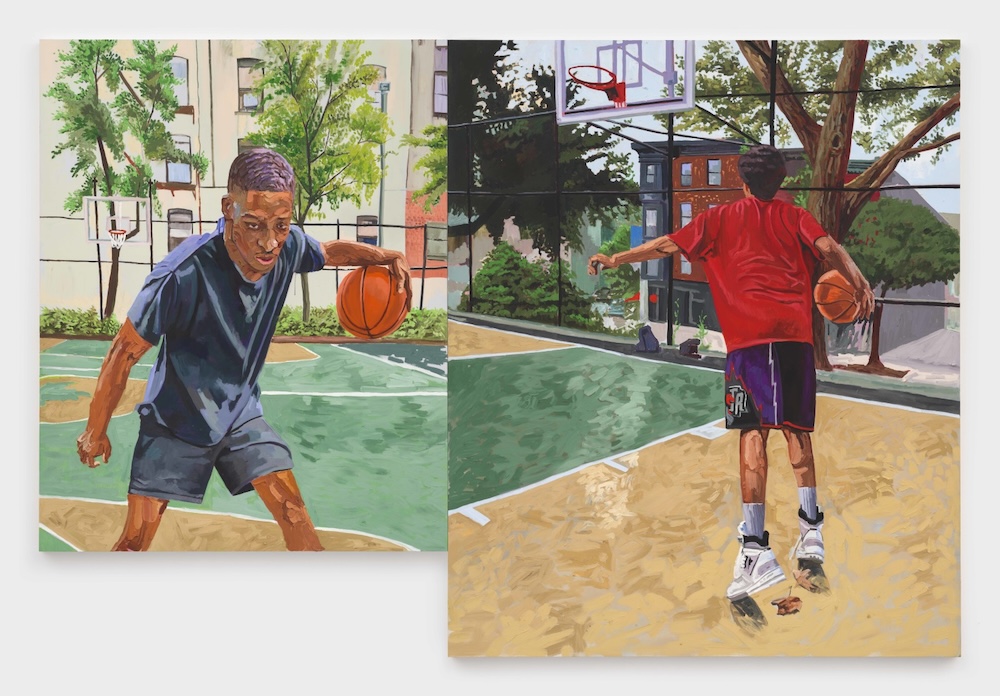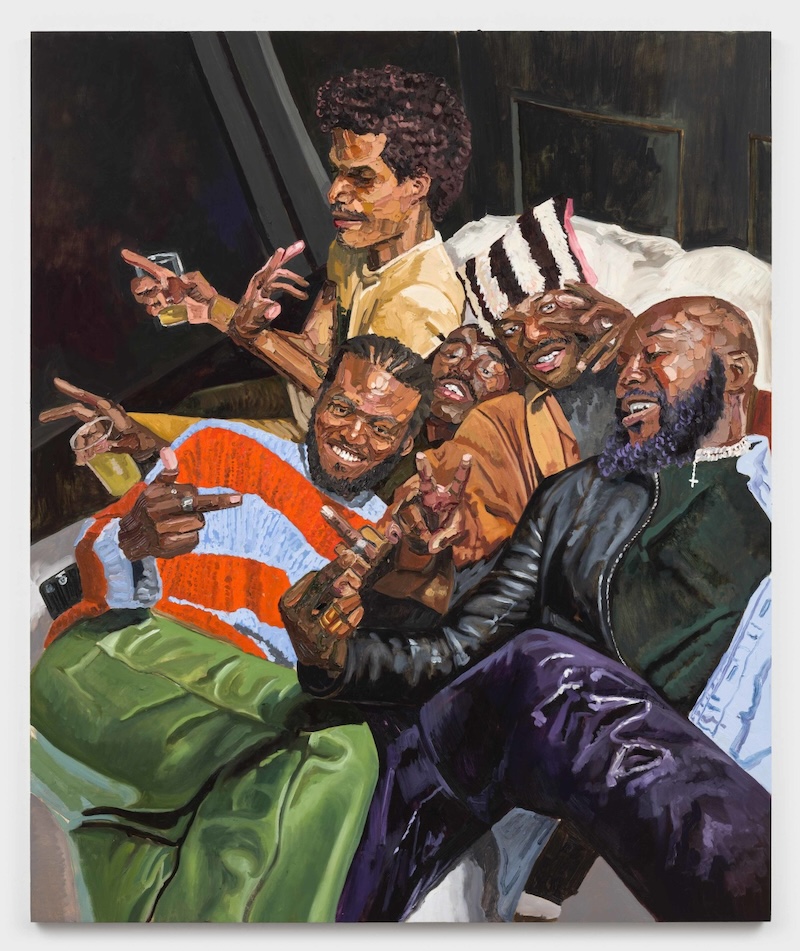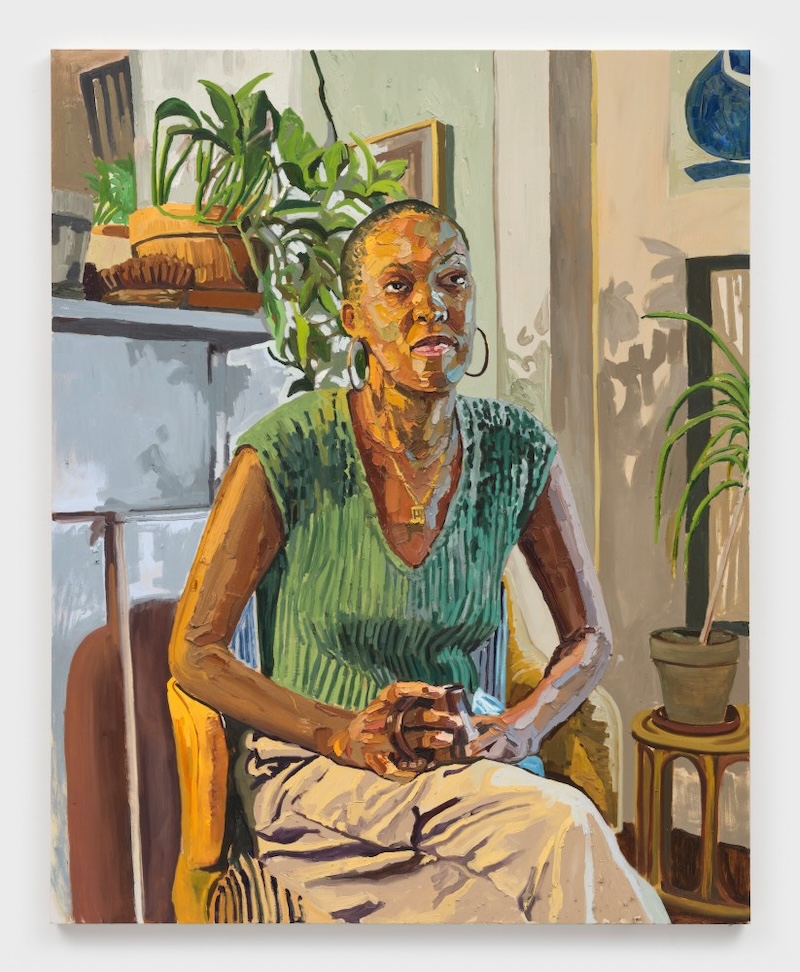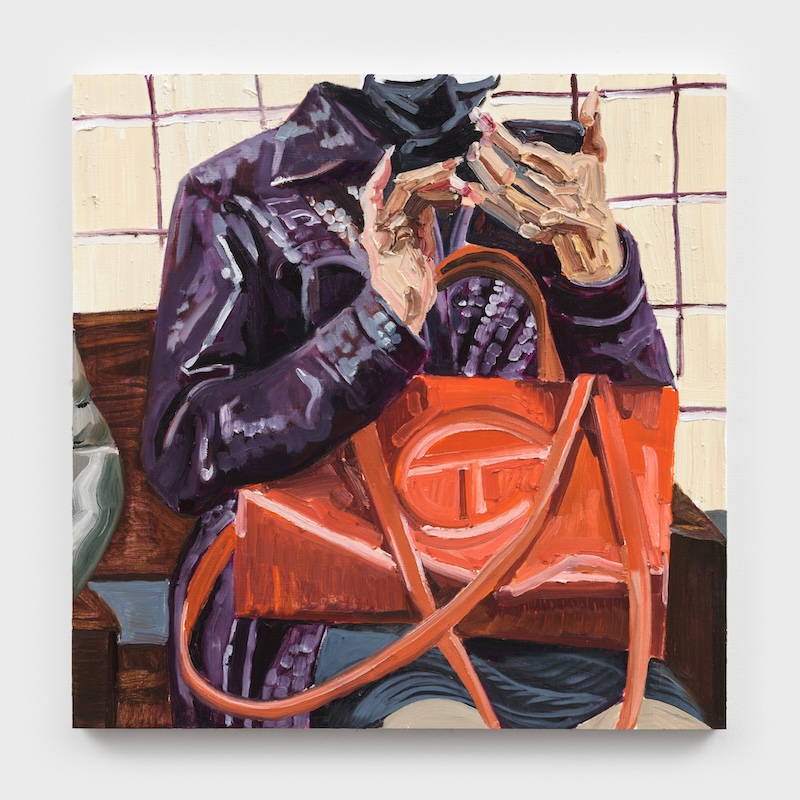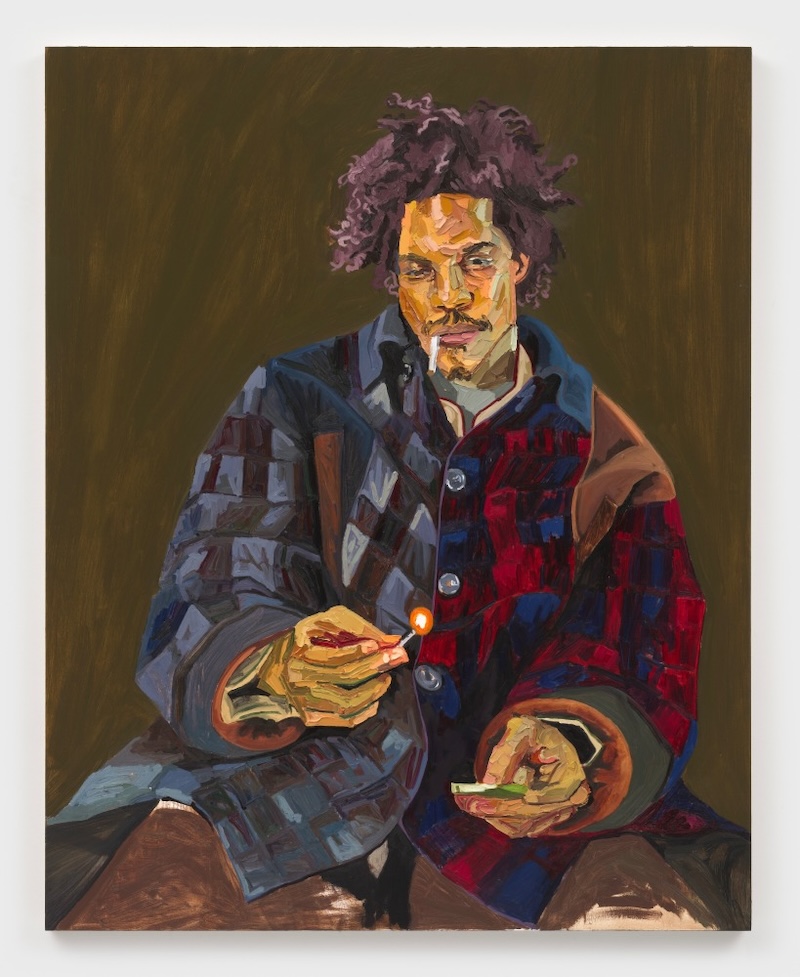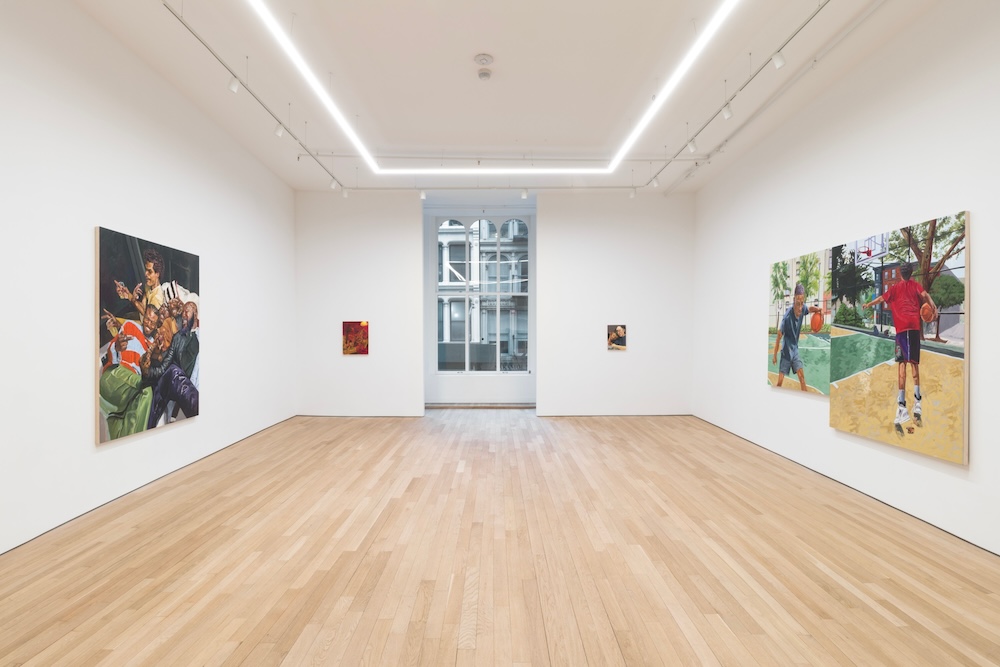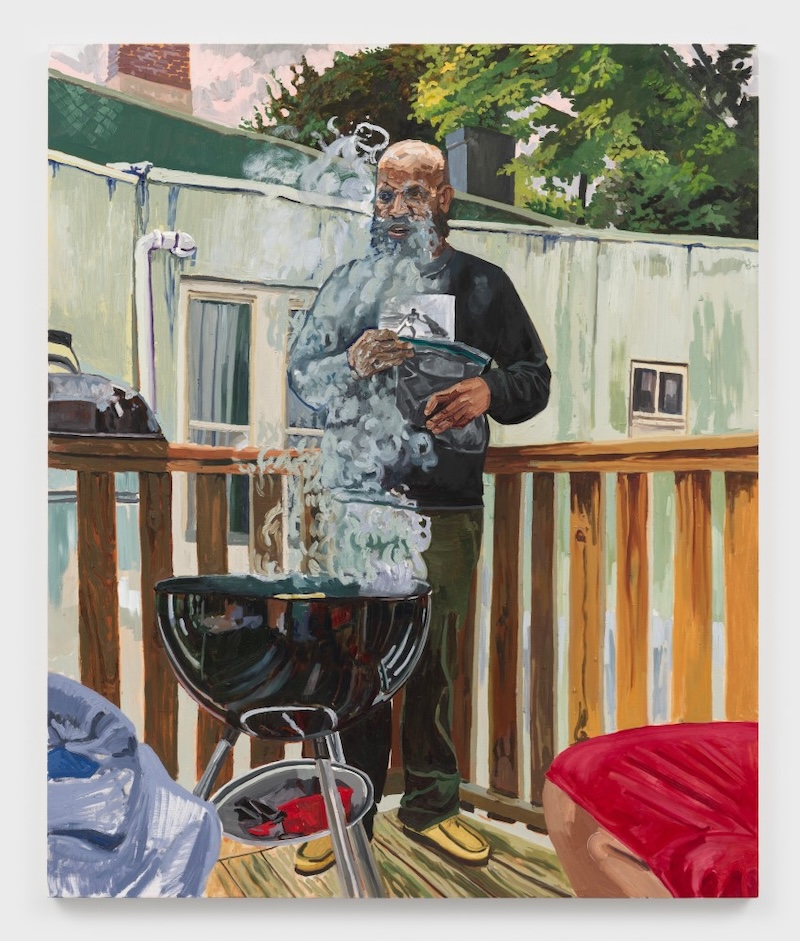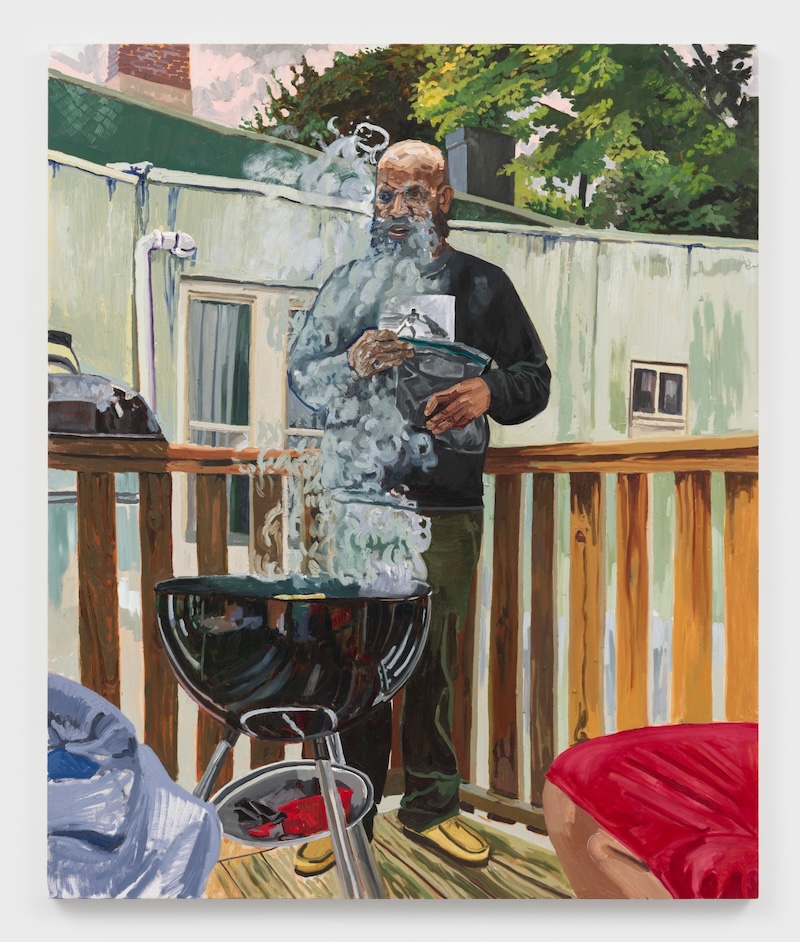P·P·O·W is pleased to present verde, Gerald Lovell’s second solo exhibition with the gallery. For Lovell, painting is an act of biography. Combining flat and impressionistic brushwork with thick daubs of impasto, Lovell’s monumental portraits depict brief moments of love often lost to time. In verde, Lovell interweaves memories with daily moments to depict the landscape of life in transition. Embracing the space between placelessness and freedom, loss and renewal, and the epic and quotidian, Lovell creates contemplative portraits of friends, travel, and nature that chronicle a journey towards self-actualization and discovery of home.
In verde, Lovell, who moved from Atlanta to New York City in 2021, portrays himself and a tightknit community of friends who have made New York City their home against the odds. Reflecting on this experience, Lovell notes, “A lot of friends I’ve painted come from similar backgrounds and it’s just as wonderful for them as it is to me that we live the life that we live, and we get to share these moments together.” In 17 Points / I Believe I Can Fly, 2023, Lovell paints two figures playing basketball in Brooklyn from two different angles. One half of the title references a reoccurring childhood dream in which Lovell scores 17 points and gets signed to play in the NBA, while the other references the theme song from the 1996 movie Space Jam, the artist’s favorite movie growing up. Lovell recalls singing “I Believe I Can Fly” on his fourth birthday when he finally got out of foster care and moved in with his grandmother.
Within these New York City scenes, Lovell intersperses moments from his first travels outside the United States, which include not only paintings with friends in major cities but in the quiet solitude of nature. Viewing landscape painting as a form of self-portraiture, Lovell describes works such as At the Peak of both Truths, the Descent Inevitable, 2024, a monumental portrayal of a mountain he climbed in Spain, as a portrait of grief, and the ways in which grief can also be viewed as an expression of love. Throughout verde, Lovell mourns the terrain of his past while extending gratitude for the new landscape of his present, an exploration of which has just begun.



